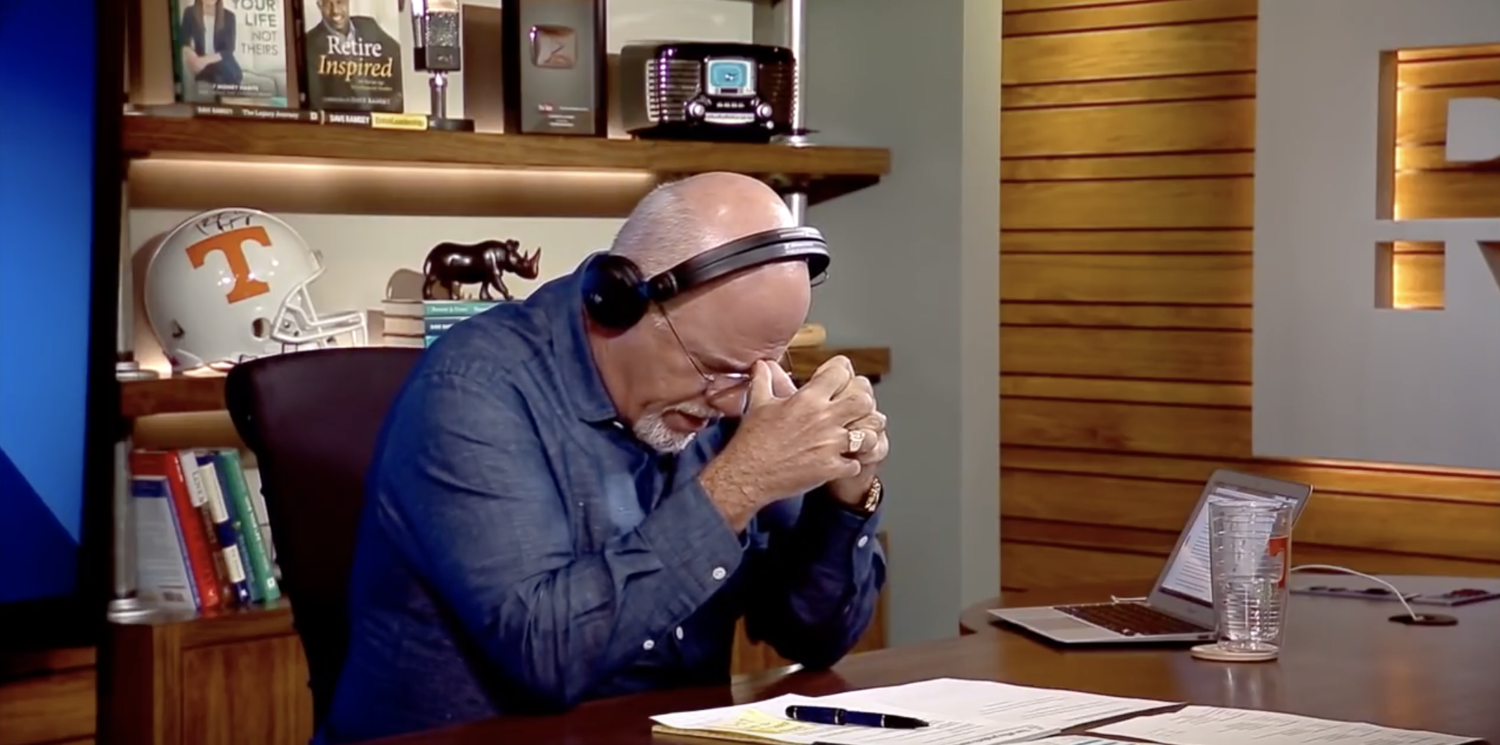I have a few basic writing tenets here at The Best Interest.
- I don’t write to appease Google’s algorithms. I write for humans, not robots.
- I prefer to avoid gimmicky listicles (“37 Reasons Your Car is Bleeding You Dry!“)
- If a topic has been covered 1000 times, I don’t want to be 1001.
But all rules are meant to be broken, and I’m breaking rule #3 today.
So many of you readers ask me if it’s smart to pay down a mortgage early. Or is investing the better option? Is it better to borrow money for a house, or save for a (potentially huge) cash down payment?
I’ll put my own twist on the answer today.
We’ll talk math and psychology. Both are important. And hopefully, we’ll find the solution that’s right for you. Let’s begin the mortgage vs. invest debate
Opening Arguments
Personal finance gurus like Dave Ramsey have done an effective job convincing the masses that debt is bad. For the most part, they’re right. Debt usually is bad.

When you borrow money, interest payments are a frictional cost from which you get no reward. Interest payments aren’t converted into equity or utility in your life. They are wasted dollars, flushed down the drain. The only benefit of interest is that it’s the “necessary evil” that enables you to borrow money in the first place.
The common-sense solution, therefore, is two-fold:
- Ideally, avoid debt in the first place.
- But if you must go into debt, pay it off as soon as possible. Minimize your interest!
When applying those two steps to home-buying, people take the following proactive measures to ensure their home debt doesn’t ruin their finances:
- Put extra cash into a down payment. Reduce the size of the debt right off the bat.
- Make extra mortgage payments when possible. Pay off the debt faster.
- Sudden windfall, like an inheritance or a big tax refund? Apply it straight to the debt. Reduce all future interest payments.
But in many circumstances, these are wrong choices.
Here’s why…
Opportunity Costs
The field of economics is all about making the best choices with limited resources. Personal finance is no different. When you have many choices but limited resources, you pay opportunity costs for the choices you didn’t make.

An opportunity cost is “the loss of potential gain from other alternatives when one alternative is chosen.” Robert Frost had limited time and could only take one of the two paths presented to him. He paid an opportunity cost—he missed out on opportunites from the second path.
Similarly, there’s an opportunity cost whenever someone applies extra cash towards their home or their mortgage.
The imperative question is: what opportunities are you missing out on?
When a homeowner makes extra payments, that money could be placed into other opportunities, like:
- in a bank savings account
- in a certificate of deposit (CD)
- in stocks or bonds
- in a child’s 529 education plan
- etc. etc.
Each alternative has its own unique opportunity cost. Some can be easily measured (using math), while others are more psychological.
The Math of Mortgage vs. Invest
One of the most basic opportunity cost comparisons is:
Should you spend your money on [insert an expense here], or simply invest that money into the stock market?
Let’s use that lens to examine mortgages.
When a homeowner makes extra mortgage payments, they are preventing future interest payments equivalent to their mortgage rate. Current mortgage rates are in the 4-6% range.
You want to put an extra $5000 towards your mortgage? You’re locking in a 5% annual return on that $5000. Not bad! That’s equivalent to buying a bond with a guaranteed 5% annual return.
But what if you invested that $5000 into the stock market. More specifically, let’s look at investment into a broad, diversified, S&P 500 stock fund.
Historically, the S&P 500 has returned about 10% per year. Granted, actual returns are never as smooth as the average. But for the sake of today’s comparison, using the 10% per year average makes sense.
Would you rather have 5% (from paying off the mortgage) or 10% (from the stock market)? It’s not a trick question.
When someone pays extra money towards their house, the math is clear. They are paying the opportunity cost of missed returns via the stock market.
This applies to both extra mortgage payments and to using extra cash to buy upfront. Mathematically, you’re better served using that money to invest in assets with greater expected returns.
The Psychology of Mortgage vs. Invest
But one of my consistent harps on The Best Interest is that personal finance is a mix of psychology and math. If you ignore one of those two pillars, your conclusion will be incomplete.
The psychology of extra home payments is multi-faceted. Some common psychological benefits are:
- Getting out of debt faster makes people feel good.
- Debt is stress. No debt is no stress.
- The “return on investment” from an extra mortgage payment (e.g. 5%) is guaranteed. The ROI from an alternative investment (e.g. stocks) is not guaranteed. Some people would rather have the guaranteed 5%, regardless of the alternatives’ potentially higher outcomes.
- Your home is a bedrock to your family. Investing extra money in your home has a hard-to-measure personal value to you.
I’m sure there are other reasons, many unique to each homeowner. But the point is clear. Not everything is dollars and cents.
And unlike the objective truth of mathematics, each homeowner’s personal preference is subjective and variable.
Some people won’t care about any of the psychological factors I outlined above. Others will care deeply about all four.
The important aspect for all homeowners is to understand their options.
Understand Your Options
Two weeks ago, we discussed how understanding your options is the only way to make optimal financial decisions.
Here’s that article.
Today’s debate is similar. There’s a mathematical answer. There are psychological motivations. There are different opportunity costs.
Based on current rates, the math points away from paying off a mortgage. But how does that make you feel?
If interest rates continue to rise, paying off a mortgage becomes more and more compelling. Back in the 80s and 90s, many homeowners had 10%+ rates on their mortgage. For them, paying off the mortgage debt was a no-brainer!
Each homeowner needs to evaluate these moving pieces in their own financial puzzle.
Personally, I have money that I could divert to my mortgage each month. About 90% of that money goes into my long-term investments (stocks, bonds, alternative assets, etc). Only the remaining 10% goes to my mortgage, guaranteeing a 4.125% return (that’s my mortgage rate).
I think of that 10% sliver as if I’m buying a 4.125% bond. It’s an investment (that’s how I think of it) that also happens to help me pay off my debt (from which I get a bit of psychological satisfaction).
That’s my reason. Yours will be different.
Decision Time
That’s the simple explanation of the mortgage vs. invest debate.
Math matters, psychology matters, and your answer might be different from mine.
Let me know if you have any questions – I’m always happy to help a reader 🙂
P.S. – here’s Robert Frost reading his own poem, The Road Not Taken
Thank you for reading! If you enjoyed this article, join 8000+ subscribers who read my 2-minute weekly email, where I send you links to the smartest financial content I find online every week.
-Jesse
Want to learn more about The Best Interest’s back story? Read here.
Looking for a great personal finance book, podcast, or other recommendation? Check out my favorites.
Was this post worth sharing? Click the buttons below to share!
This is one of the never ending debates.
Good job at clearly pointing out both sides.
My story, over two decades ago I went down the path of paying off the mortgage. Too late now to worry about which path I should have taken. I was investing back then too, but investing in individual companies and 2008-9 were not good years. Mathematically looking back using my investments I made the right choice paying off my mortgage. However, if I had invested in the S&P 500 index instead of paying off my mortgage I should be kicking myself for the very large opportunity cost my choice had.